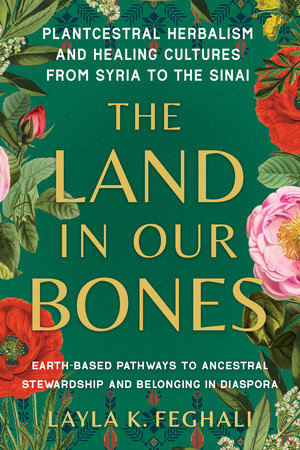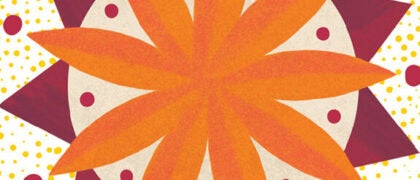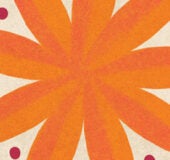"Feghali's evocative work grounds itself in the reclamation of land and plant sovereignty to at once refuse, defy, revitalize, and reclaim geographic and cultural concepts co-opted by fascist and nationalist movements in the SWANA region.... Feghali enacts and animates for us what could be possible if we re-member ancestry alongside ever-emerging knowledge in service of liberated futures. In doing so, Feghali invites us into a world of plantcestry, one that distills with moving radiance how to move beyond familiar foreclosures insisted upon by borders, essentialism, sectarianism, and racism."
—LARA SHEEHI, PsyD, assistant professor of clinical psychology at George Washington University and president of the Society for Psychoanalysis and Psychoanalytic Psychology
"As a clinical herbalist and member of the American Herbalist Guild, I have been waiting my entire life for an herbal book like this; a book in which the information shared about medicinal plants is firmly rooted in their historical, cultural, ecological, and mythological context.... Feghali offers us all an embodied praxis to work with our plantcestors as a path of ancestral remembrance, reconnection, and healing.... This book is a masterpiece and an essential contribution to the canon of books on herbal medicine."
—ATAVA GARCIA SWIECICKI, MA, RH (AHG), author of The Curanderx Toolkit
"[This book] momentously affirms forgotten legacies of herbal and ancestral healing while potentiating urgent life-affirming visions for the future. By replacing dominant European approaches to Middle East/North African histories with restorative generational wisdoms, this book will transform our knowledge systems and the ways we reckon with land, life, and each other."
—DR. NADINE NABER, author and professor of gender and women’s studies and global Asian studies at the University of Illinois
"Layla Feghali has given us a passage away from the barren mindscape of colonial thinking, dehumanizing separation, and environmental devastation. We are invited to heal from the wounds of war and the death of cultures. We may step carefully across the lines that divide us: race, class, religion, and traditions.... This is a monumental work."
—YEYE LUISAH TEISH, author of Jambalaya
"This book breaks the artificial barriers of history and politics that have been shaped by successive waves of colonization in West Asia and North Africa, that have artificially created divides between people deemed to be African or Arab, and demonstrates our deep connections through our shared cultivation of our plantcestors and ecologies. Drawing on this knowledge can be strategically employed in the healing work our generation must engage in, physically, culturally, and politically, in order to meet and overcome the threats of our age, particularly climate change."
—KALI AKUNO, author and cofounder of Cooperation Jackson
"Layla Feghali grapples with the tension of reconnecting to ancestral land while living in diaspora, away from a region disfigured by multiple layers of colonialism.... This book is a gift, a path toward decolonized futures and one of those texts I will be returning to for many years to come."
—NOAM KEIM, Megaphone Publishing Prize winner 2022
"Layla is adding complexity and introducing plurality on identity and history that is purposefully erased and simplified in order to disempower the largest diaspora in the world in knowing where their roots belong."
—CELINE SEMAAN, cofounder of Slow Factory








